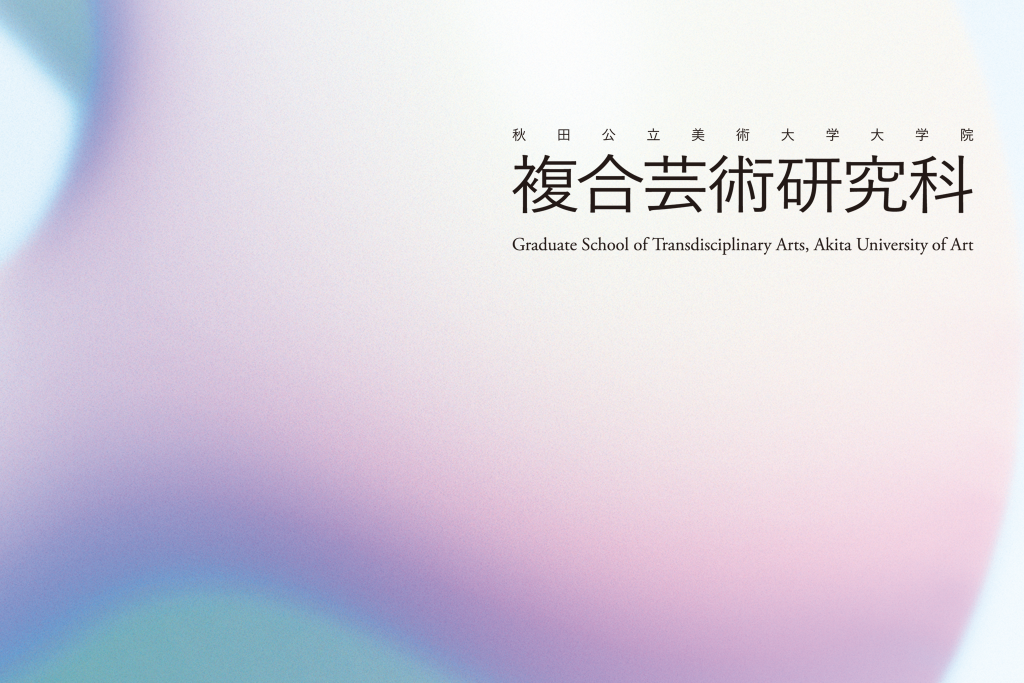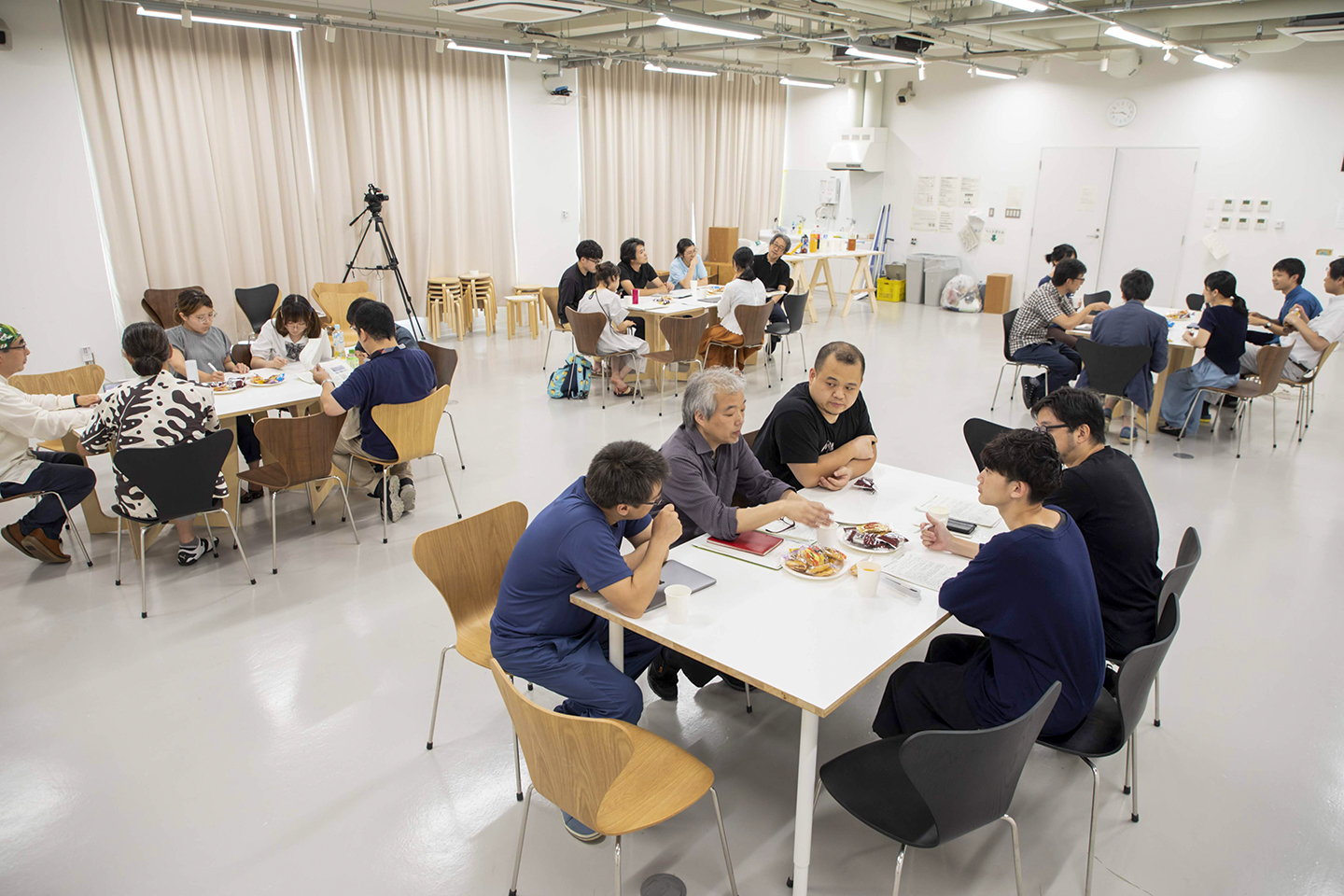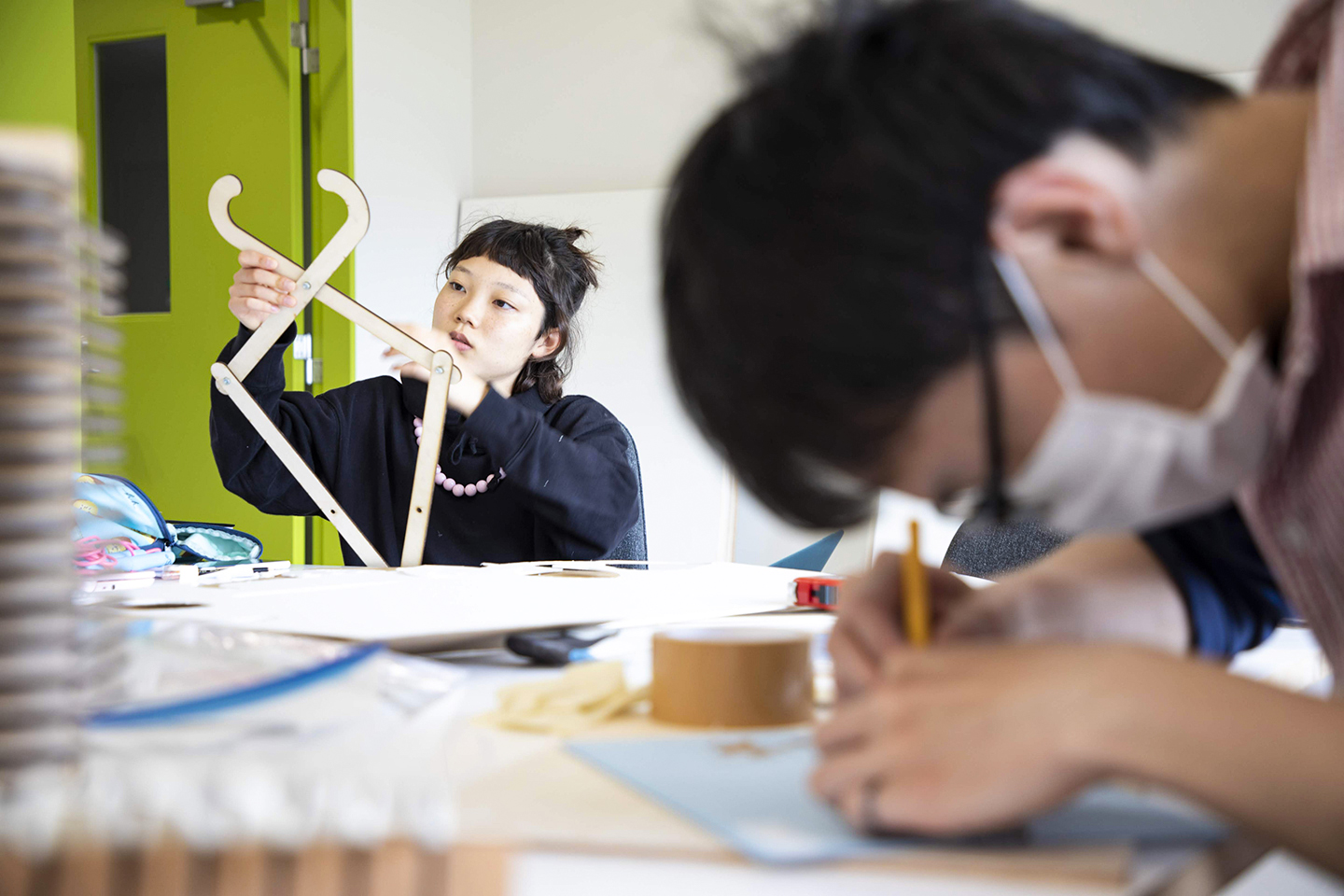AUA’s Graduate School of Transdisciplinary Arts was created for students who want to bring about meaningful social change through a “transdisciplinary” approach to art research. This approach allows students to combine aesthetic techniques acquired during undergraduate study with new realms of knowledge, drawing not only from the traditional artistic disciplines, but also from non-artistic fields such as IT.
The Transdisciplinary Arts program is led by instructors who are actively engaged in the fields of art and design. Students can gain practical skills and hands-on experience while acquiring the knowledge, techniques and perspectives necessary to carry out this unique form of art research.
Graduate School of Transdisciplinary Arts
Course of Transdisciplinary Arts
Capacity: 10 students per academic year (master course) / 2 student per academic year (doctor course)
Course term: 2 years(master course) / 3 year (doctor course)
Graduate School: Transdisciplinary Arts
Department: Transdisciplinary Arts
* The following subjects will be handled by all faculty members of Akita University of Art.
“Guided Research I, II”, “Production Skills Workshop I, II, III”, “Transdisciplinary Arts Practicum”
Please reference to the page of each department / center for faculty members.
>>To the list of faculty members at Akita University of Art
Admission policy
Ideal candidates will have:
1. A desire to pursue and explore new forms of artistic expression;
2. An ability to combine local and global perspectives;
3. A willingness to work with others while engaging in individual research and production
Diploma policy
Upon course completion, students should be able to demonstrate the following skills:
- 1. The ability to explore new forms of artistic expression beyond the bounds of existing frameworks, while drawing upon a variety of fields and disciplines;
- 2. The ability to formulate concrete solutions to complex problems through artistic and design methodologies which take into account current trends and regional differences;
- 3. The ability to provide articulate criticism and evaluation of modern artistic research and practices through a global perspective.

 Transdisciplinary Arts
Transdisciplinary Arts Characteristics
Characteristics Course Modules
Course Modules